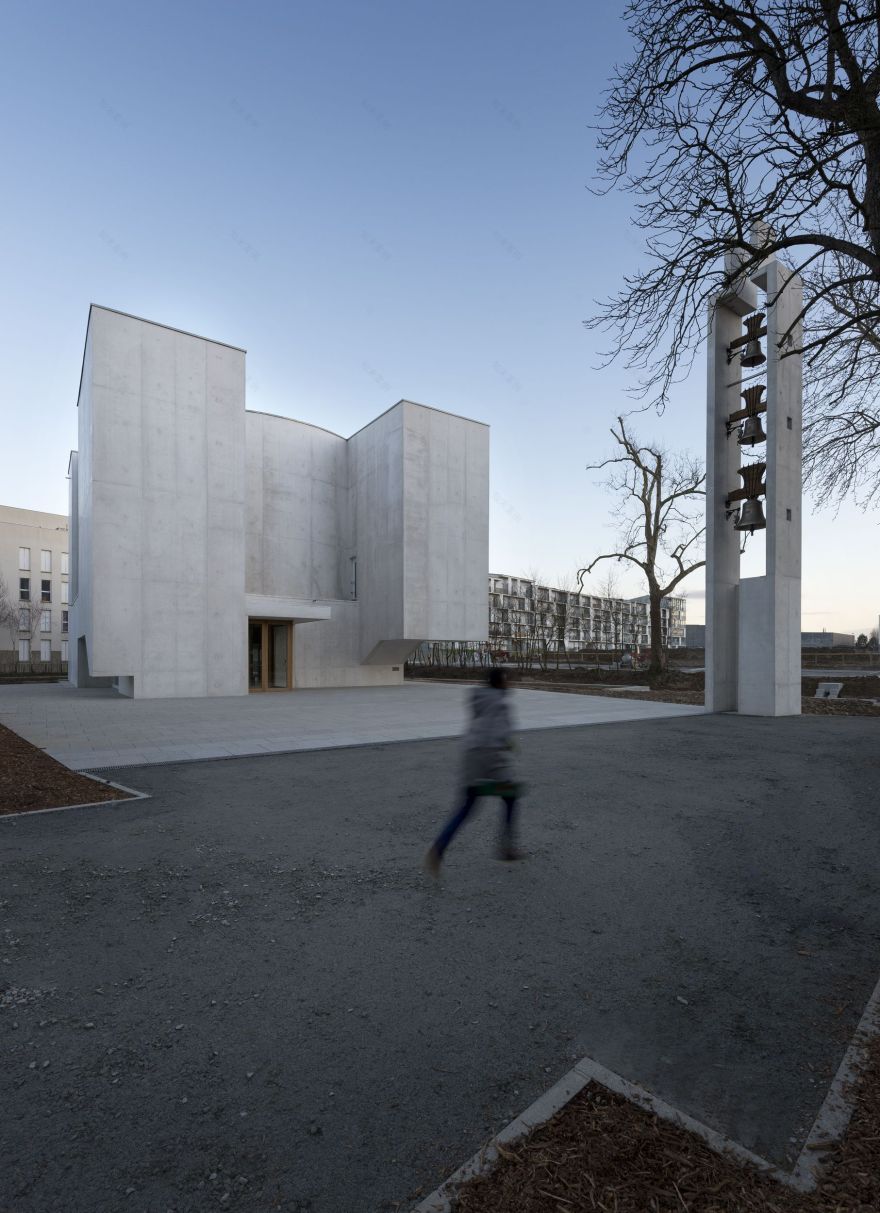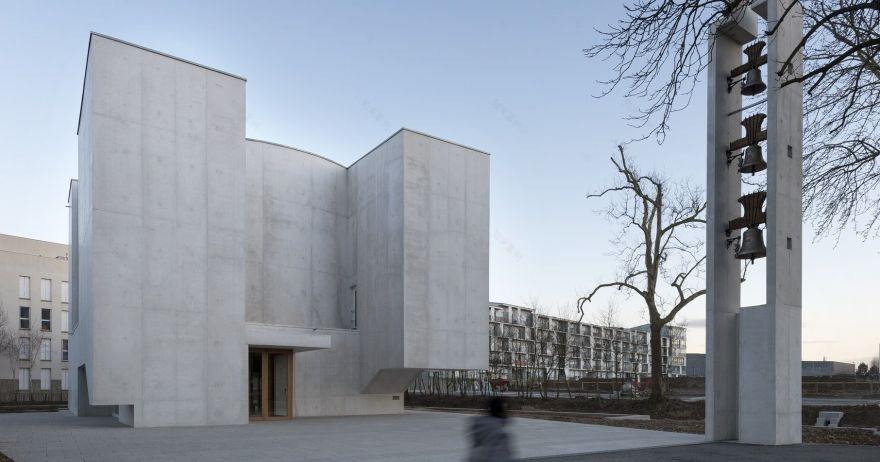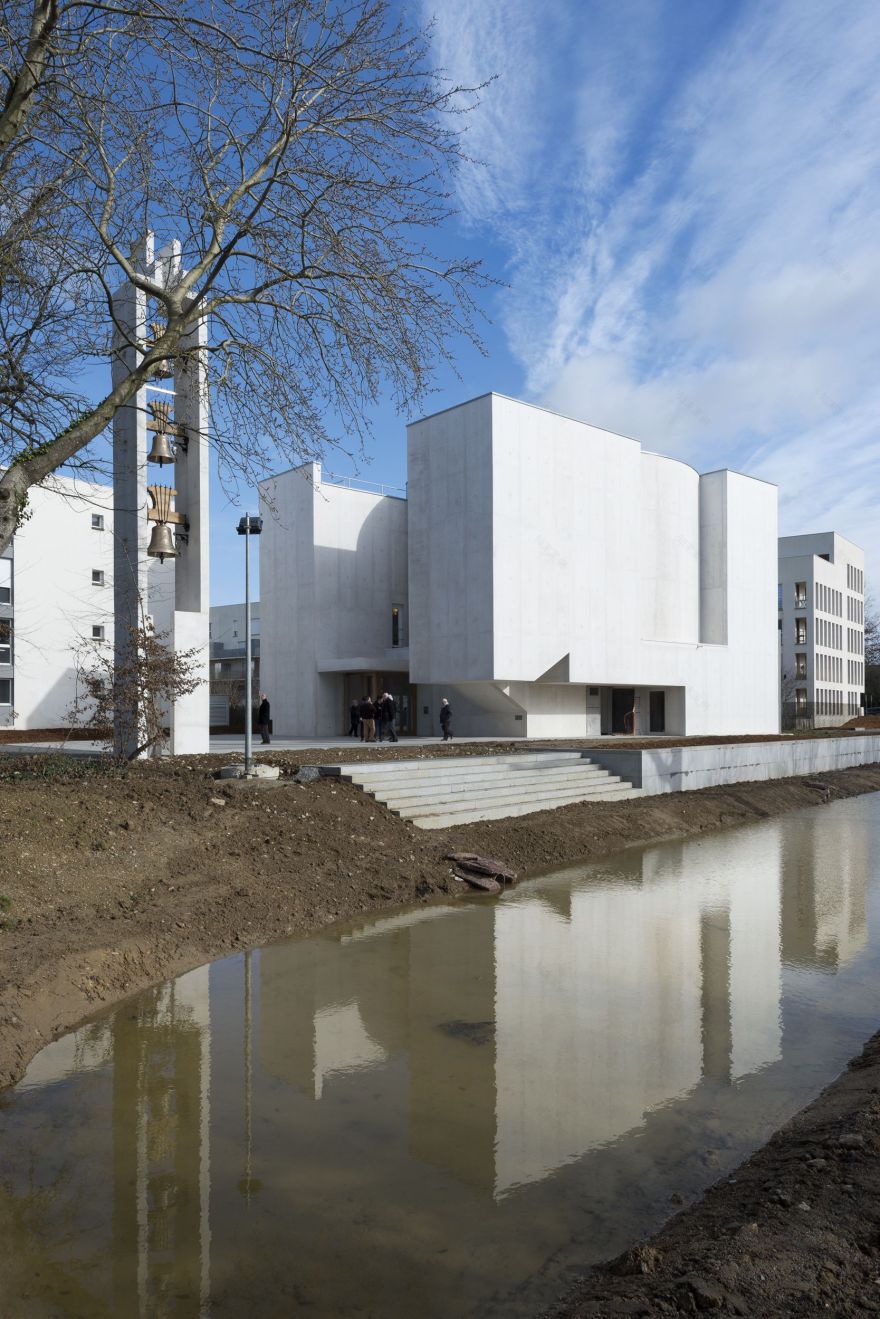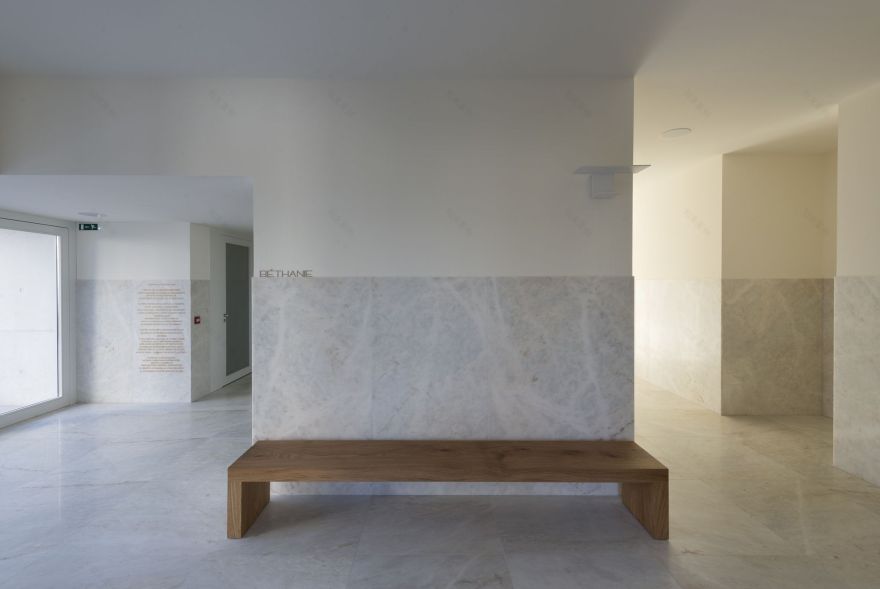查看完整案例


收藏

下载

翻译
Designed by the Portuguese Architect Álvaro Siza Vieira, the Saint-Jacques-de-la-Lande features intertwining concrete masses.
Located in the south of Rennes, Brittany is a cultural region in northwestern France. Siza has selected insulated white concrete as the main building material for the church. White concrete is a material often made of pre-cast panels instead of white cement. This locally produced material is also used in the surrounding housing blocks and makes the church in harmony with the rest of the neighborhood. Constructed using load-bearing walls, the building is marked out as the first church to be built in this area during the 21st century.
photography by © Ana Amado
The Portuguese architect’s main priority was to integrate the church with the surrounding buildings. The social meetings and the administrative work take place on the ground floor while the church itself is on the upper floor. With a capacity of 126 people, the church includes a semi-circular apse where the tabernacle is found, reminiscent of old French churches but with modern geometries. These signature geometric volumes represent a common trademark in the design of the Pritzker Prize winner, who has also designed Nadir Afonso Foundation in Portugal, the Boa Nova Tea House and the Ibere Camargo Foundation in Brazil.
The designers said in a statement: “The church is inserted as a free-standing volume that adapts to the existing plan and the dimensions of the nearby buildings and spaces, extant or planned, and particularly the size of the apartment block to the north.” The quality of light inside the crisp white church gives a feeling of spirituality and serenity. “A square platform is suspended above the cylindrical space of the church to control the light entering through the clerestory and hold the lighting and ventilation equipment,” adds the Portugal-based studio. “The sides of this square panel are parallel to the axis of the congregation zone. The church is thus lit from above and indirectly, reflecting off the ceiling and the cylindrical walls.”
Photography by © Ana Amado
Table of Contents
Related: Nadir Afonso Art Museum in Chaves | Álvaro Siza VieiraBoa Nova Tea House | Álvaro Siza Vieira
Related: Nadir Afonso Art Museum in Chaves | Álvaro Siza Vieira
Boa Nova Tea House | Álvaro Siza Vieira
photography by © Ana Amado
photography by © Ana Amado
photography by © Ana Amado
photography by © Ana Amado
photography by © Ana Amado
photography by © Ana Amado
photography by © Ana Amado
photography by © Ana Amado
photography by © Ana Amado
photography by © Ana Amado
photography by © Ana Amado
photography by © Ana Amado
photography by © Ana Amado
photography by © Ana Amado
photography by © Ana Amado
photography by © Ana Amado
photography by © Ana Amado
photography by © Ana Amado
photography by © Ana Amado
photography by © Ana Amado
photography by © Ana Amado
photography by © Ana Amado
photography by © Ana Amado
photography by © Ana Amado
photography by © Ana Amado
photography by © Ana Amado
photography by © Ana Amado
photography by © Ana Amado
photography by © Ana Amado
photography by © Ana Amado
photography by © Ana Amado
photography by © Ana Amado
photography by © Ana Amado
photography by © Ana Amado
photography by © Ana Amado
photography by © Ana Amado
photography by © Ana Amado
photography by © Ana Amado
photography by © Ana Amado
photography by © Ana Amado
photography by © Ana Amado
photography by © Ana Amado
photography by © Ana Amado
photography by © Ana Amado
photography by © Ana Amado
photography by © Ana Amado
photography by © Ana Amado
photography by © Ana Amado
photography by © Ana Amado
photography by © Ana Amado
photography by © Ana Amado
photography by © Ana Amado
客服
消息
收藏
下载
最近























































